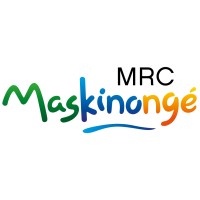
MRC Maskinongé — RRF-stream 3 Signature innovation
MRC de Maskinongé- No Condition
- Arts, entertainment and recreation
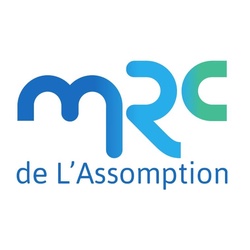
MRC de L'Assomption — FLI/FLS
MRC de L'Assomption- Maximum amount : 100,000 $
- Up to 50% of project cost
- All industries

MRC Maskinongé — Social Economy Fund (ES)
MRC de Maskinongé- Maximum amount : 15,000 $
- Agriculture, forestry, fishing and hunting
- Manufacturing
- Arts, entertainment and recreation
- Other services (except public administration)
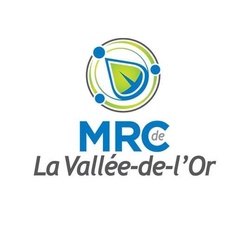
MRC La Vallée-de-l'Or — Quebec Fund for Social Initiatives (FQIS)
MRC La Vallée-de-l'Or- Up to 90% of project cost
- Health care and social assistance
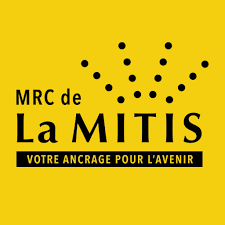
RCM de la Mitis — Component 4 : Support for revitalization and intermunicipal cooperation
La Mitis RCM- No Condition
- Agriculture, forestry, fishing and hunting
- Transportation and warehousing
- Arts, entertainment and recreation
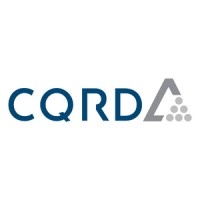
CQRDA — PSO-v2A
Centre québécois de recherche et de développement de l’aluminium (CQRDA)- From $100,000 to $350,000
- Up to 80% of project cost
- Manufacturing
- Professional, scientific and technical services
- Educational services

La Vallée-du-Richelieu Agricultural Microcredit Fund
RCM Vallée-Du-Richelieu- Maximum amount : 10,000 $
- Up to 20% of project cost
- Agriculture, forestry, fishing and hunting

RCM de la Vallée-Du-Richelieu — Futurpreneur Canada
RCM Vallée-Du-Richelieu- Maximum amount : 60,000 $
- Up to 20% of project cost
- Agriculture, forestry, fishing and hunting
- Arts, entertainment and recreation
- Other services (except public administration)
- Public administration

Évolution-Compétences — Partnership for training and innovation
Commission des partenaires du marché du travail (CPMT)- Up to 50% of project cost
- Educational services

Game Changer Pitch Competition
Decentralised Energy Canada (DEC)- No Condition
- Utilities
- Information and cultural industries
- Professional, scientific and technical services

RCM Vallée-Du-Richelieu — Programme Innovation (PI)
RCM Vallée-Du-Richelieu- Maximum amount : 10,000 $
- Up to 20% of project cost
- Manufacturing
- Information and cultural industries
- Professional, scientific and technical services
- Other services (except public administration)

RCM Vallée-Du-Richelieu — Fonds d'appui à l'entrepreneuriat collectif (FAEC)
RCM Vallée-Du-Richelieu- Maximum amount : 10,000 $
- Other services (except public administration)
- Public administration

RCM Vallée-Du-Richelieu — Fonds de soutien à l'entrepreneuriat
RCM Vallée-Du-Richelieu- Maximum amount : 5,000 $
- Up to 20% of project cost
- Agriculture, forestry, fishing and hunting
- Manufacturing
- Retail trade
- Information and cultural industries
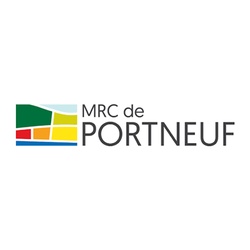
MRC Portneuf — Business Support Fund
MRC Portneuf- Maximum amount : 15,000 $
- Up to 50% of project cost
- All industries
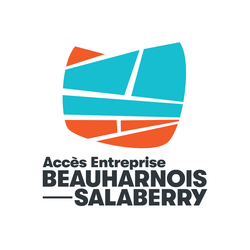
MRC Beaharnois-Salaberry — Policy to support structuring projects
MRC Beauharnois-Salaberry- Maximum amount : 100,000 $
- Up to 70% of project cost
- Information and cultural industries
- Educational services
- Health care and social assistance
- Arts, entertainment and recreation

MTRIC — PARTENAR-IA — Academic
Metal Transformation Research and Innovation Consortium (MTRIC)- Maximum amount : 1,500,000 $
- Up to 35% of project cost
- Mining, quarrying, and oil and gas extraction
- Manufacturing

Tax Credit for Pre-Competitive Private Partnership Research
Ministère de l'économie, de l'innovation et de l'énergie du Québec (MEIE)- Maximum amount : 3,000,000 $
- Up to 30% of project cost
- Professional, scientific and technical services
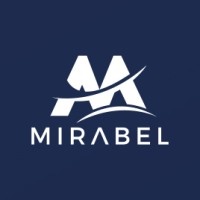
Fund for Innovation and Technology (FIT)
Mirabel Economique- Maximum amount : 25,000 $
- Up to 50% of project cost
- All industries
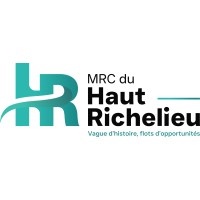
MRC Haut-Richelieu — FRR – Stream 3
MRC du Haut-Richelieu- Maximum amount : 2,139,780 $
- Up to 80% of project cost
- Public administration
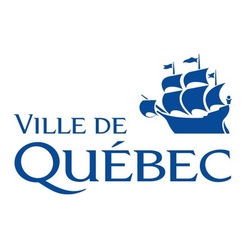
Défi-Québec, Sustainable City
Quebec City- Maximum amount : 50,000 $
- Manufacturing
- Transportation and warehousing
- Finance and insurance
- Arts, entertainment and recreation

Social economy enterprises — Support for structuring projects
Quebec City- Up to 80% of project cost
- Educational services
- Health care and social assistance
- Arts, entertainment and recreation
- Other services (except public administration)

MRC La Matanie — Grant and Sponsorship Program
MRC La Matanie- Maximum amount : 250,000 $
- Retail trade
- Arts, entertainment and recreation
- Accommodation and food services
- Other services (except public administration)
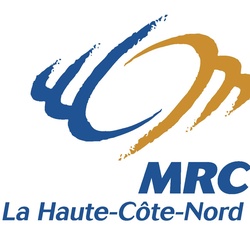
MRC La Haute-Côte-Nord — Support for preliminary studies and expertise funds for project implementation (PSEFE)
MRC La Haute-Côte-Nord- Maximum amount : 40,000 $
- Up to 50% of project cost
- Professional, scientific and technical services

Laurentides Tourism — Regional Partnership and Digital Transformation Agreement in Tourism (EPRTNT) – Attractions, activities, and amenities
Laurentides Tourism- From $30,000 to $95,000
- Up to 50% of project cost
- Arts, entertainment and recreation
- Accommodation and food services

MRC L'Islet — SME Propulsion Measurement
MRC de L'Islet- From $3,000 to $25,000
- Up to 35% of project cost
- Manufacturing
- Accommodation and food services
Discover how much grant funding is available for your business
Subsidize your projects with grants!
Use our free grant estimator to quickly identify the available grant amounts for which your company may be eligible.

Évolution-Compétences — Call for projects Parcours Exploration
Commission des partenaires du marché du travail (CPMT)- Up to 100% of project cost
- Construction
- Manufacturing
- Information and cultural industries
- Professional, scientific and technical services

MRC Beaharnois-Salaberry — Propulsion Funds
MRC Beauharnois-Salaberry- Maximum amount : 20,000 $
- Up to 75% of project cost
- All industries

MRC La Vallée-de-l’Or — Regions and Rurality Fund – Component 3 – Market Gardening Program
MRC La Vallée-de-l'Or- Maximum amount : 150,000 $
- Up to 50% of project cost
- Agriculture, forestry, fishing and hunting
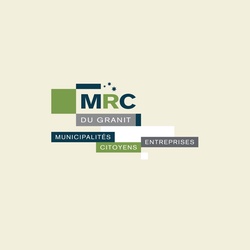
MRC du Granit — FIL
MRC du Granit- No Condition
- Manufacturing
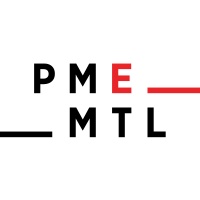
PME MTL — Innovation Investment Fund — Loans
PME MTL- Maximum amount : 150,000 $
- Up to 80% of project cost
- Manufacturing
- Information and cultural industries
- Professional, scientific and technical services
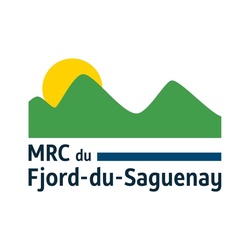
MRC Fjord-du-Saguenay — Development Optimisation Fund
MRC Fjord-du-Saguenay- From $2,000 to $3,000
- Up to 50% of project cost
- Agriculture, forestry, fishing and hunting
- Mining, quarrying, and oil and gas extraction
- Manufacturing
- Wholesale trade
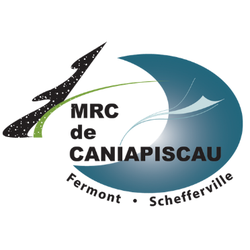
MRC Caniapiscau — FDE
MRC de Caniapiscau- Up to 50% of project cost
- Agriculture, forestry, fishing and hunting
- Mining, quarrying, and oil and gas extraction
- Manufacturing
- Information and cultural industries

MRC La Matanie — Local Investment Funds
MRC La Matanie- Maximum amount : 250,000 $
- Retail trade
- Accommodation and food services
- Other services (except public administration)
- Public administration

Genomics integration program – Agriculture and biofood, forestry and environment
Génome Québec- From $50,000 to $150,000
- Agriculture, forestry, fishing and hunting
- Mining, quarrying, and oil and gas extraction
- Utilities
- Professional, scientific and technical services

CQRDA — INNOV-R
Centre québécois de recherche et de développement de l’aluminium (CQRDA)- Maximum amount : 1,500,000 $
- Up to 40% of project cost
- Manufacturing
- Professional, scientific and technical services
- Educational services

Tourism Innovation Program — Stream 3 - Networking with regional innovation organisations
MT Lab- No Condition
- Information and cultural industries
- Arts, entertainment and recreation
- Accommodation and food services

SODEC — Support for innovative initiatives
Société de développement des entreprises culturelles (SODEC)- Maximum amount : 500,000 $
- Up to 50% of project cost
- Information and cultural industries

MRC Joliette — Business Assistance Fund (FAE) – Stream 3
MRC de Joliette (CDÉJ)- Maximum amount : 3,000 $
- Agriculture, forestry, fishing and hunting
- Manufacturing
- Professional, scientific and technical services
- Arts, entertainment and recreation
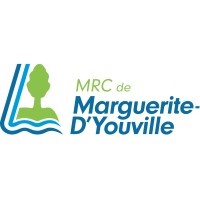
MRC Marguerite-D'Youville — Business Support Fund – Stream 2
MRC de Marguerite-D'Youville- Maximum amount : 10,000 $
- Up to 20% of project cost
- Health care and social assistance
- Other services (except public administration)
- Public administration

PROMPT — GHG reduction – Academic component
PROMPT- Maximum amount : 1,500,000 $
- Up to 50% of project cost
- Utilities
- Manufacturing
- Professional, scientific and technical services
- Educational services

MRC Portneuf — Capitale-Nationale Region Fund (FRCN)
MRC Portneuf- Maximum amount : 100,000 $
- Up to 50% of project cost
- Agriculture, forestry, fishing and hunting
- Manufacturing
- Information and cultural industries
- Administrative and support, waste management and remediation services

CQRDA — PSO-International
Centre québécois de recherche et de développement de l’aluminium (CQRDA)- Maximum amount : 1,500,000 $
- Up to 50% of project cost
- Manufacturing
- Professional, scientific and technical services
- Educational services
- Health care and social assistance

MRC Fjord-du-Saguenay — Local FLI/FLS funds
MRC Fjord-du-Saguenay- Maximum amount : 150,000 $
- Up to 50% of project cost
- Manufacturing
- Professional, scientific and technical services
- Health care and social assistance
- Other services (except public administration)

Saguenay Promotion — FRR – Business Support
Promotion Saguenay- Maximum amount : 20,000 $
- Up to 50% of project cost
- Agriculture, forestry, fishing and hunting
- Mining, quarrying, and oil and gas extraction
- Utilities
- Construction
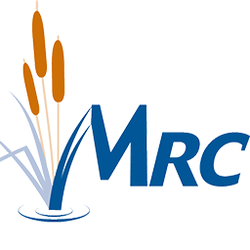
MRC Kamouraska — Support Program for Innovative Projects for Cultural Development and Community Animation
MRC Kamouraska- Maximum amount : 4,000 $
- Arts, entertainment and recreation

Développement Vaudreuil-Soulanges — FDEÉS
Développement Vaudreuil-Soulanges- Maximum amount : 10,000 $
- Up to 70% of project cost
- Other services (except public administration)
- Public administration
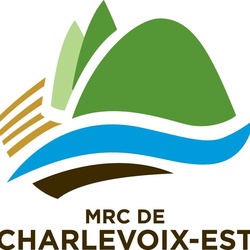
MRC Charlevoix-Est — Signature Innovation Fund
MRC Charlevoix-Est- Maximum amount : 150,000 $
- Up to 50% of project cost
- Transportation and warehousing
- Arts, entertainment and recreation
- Accommodation and food services
- Other services (except public administration)

MRC Témiscouata — Signature Innovation Fund - Component 3 - Rurality and Region Fund
MRC Témiscouata- Maximum amount : 218,798 $
- Up to 80% of project cost
- Agriculture, forestry, fishing and hunting

MRC Abitibi-Ouest — Emergence Fund
MRC Abitibi-Ouest- Maximum amount : 25,000 $
- Up to 50% of project cost
- All industries

MRC de Rivière-du-Loup — FRR – Stream 3: Signature innovation - renewable energies
MRC Rivière-du-Loup- Maximum amount : 150,000 $
- Up to 80% of project cost
- Utilities
- Manufacturing
- Transportation and warehousing
- Professional, scientific and technical services
Find tailored funding for your business
Discover more grants on the helloDarwin platform
Look through over 4,000 grants, tax credits, loans and more financial aid on the helloDarwin application.
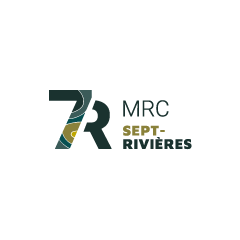
MRC Sept-Rivières — Support for entrepreneurship (SE)
MRC de Sept-Rivières- Maximum amount : 150,000 $
- Up to 50% of project cost
- Agriculture, forestry, fishing and hunting
- Manufacturing
- Information and cultural industries
- Accommodation and food services
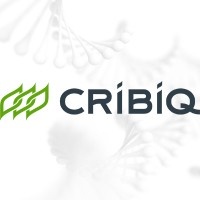
Call for Projects on the Procurement & Conditioning of Forest Biomass for Bioenergy Production
Consortium de recherche et d'innovations en bioprocédés industriels au Québec (CRIBIQ)- Maximum amount : 200,000 $
- Up to 50% of project cost
- All industries

MRC de Rivière-du-Loup — FRR – Stream 2: Support for structuring projects to improve living environments
MRC Rivière-du-Loup- Maximum amount : 20,000 $
- Up to 40% of project cost
- Educational services
- Health care and social assistance
- Arts, entertainment and recreation
- Other services (except public administration)

Support for mobilising projects
Investissement Québec (IQ)- Maximum amount : 500,000 $
- Up to 50% of project cost
- All industries

Project Financing
Investissement Québec (IQ)- Minimum amount : 50,000 $
- Up to 100% of project cost
- All industries

Open Innovation Subsidy Program for start-up companies
City of Montreal (MTL)- Maximum amount : 50,000 $
- Up to 50% of project cost
- Transportation and warehousing
- Information and cultural industries
- Health care and social assistance
- Accommodation and food services

City of Lévis — Desjardins Business Fund (FDE)
Ville de Lévis- Maximum amount : 100,000 $
- Manufacturing
- Retail trade
- Information and cultural industries
- Accommodation and food services

MRC L'Islet — Support fund for creative caravans
MRC de L'Islet- Maximum amount : 100,000 $
- Up to 75% of project cost
- Arts, entertainment and recreation

innovÉÉ — Primo-adoptants
innovÉÉ- Maximum amount : 75,000 $
- Up to 60% of project cost
- Professional, scientific and technical services

PME MTL — Subsidies to support social economy initiatives
PME MTL- From $5,000 to $50,000
- Up to 80% of project cost
- All industries

Call for projects showcasing Sherbrooke’s intangible heritage
Ville de Sherbrooke- No Condition
- Information and cultural industries
- Arts, entertainment and recreation
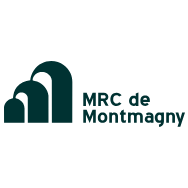
MRC Montmagny — Regions and Rurality Fund (FRR)
MRC de Montmagny- Maximum amount : 50,000 $
- Up to 50% of project cost
- Agriculture, forestry, fishing and hunting
- Construction
- Manufacturing
- Retail trade

MRC Arthabaska — Social Economy Business Development Fund (FDEÉS)
MRC Arthabaska- No Condition
- Manufacturing

innovÉÉ — PSO
innovÉÉ- Maximum amount : 500,000 $
- Up to 40% of project cost
- Utilities
- Transportation and warehousing
- Professional, scientific and technical services

MRC de Montcalm — New Entrepreneur Fund
MRC Montcalm- Maximum amount : 14,000 $
- Up to 50% of project cost
- Manufacturing
- Retail trade
- Information and cultural industries
- Arts, entertainment and recreation

MRC de Vaudreuil-Soulanges — Fonds de développement des communautés (FDC)
MRC de Vaudreuil-Soulanges- Up to 70% of project cost
- Transportation and warehousing
- Educational services
- Health care and social assistance

MRC La Matanie — Community Development Program - Special Collaborations Stream
MRC La Matanie- Maximum amount : 250,000 $
- Retail trade
- Accommodation and food services
- Other services (except public administration)
- Public administration

Innovation in Quantum Technologies — Stream 1
Ministère de l'économie, de l'innovation et de l'énergie du Québec (MEIE)- Maximum amount : 150,000 $
- Up to 50% of project cost
- Professional, scientific and technical services

Innovation Canada — Innovation Advisors in QC
Innovation Canada- No Condition
- All industries

Funding program for cybersecurity innovation projects in Quebec – Innovation stream
PROMPT- Up to 25% of project cost
- Information and cultural industries

Beauce-Centre MRC — Optimization Assistance Program
MRC Beauce-Centre- Maximum amount : 25,000 $
- Up to 50% of project cost
- Agriculture, forestry, fishing and hunting
- Manufacturing

MRC Marguerite-D'Youville — Business Support Fund – Stream 4
MRC de Marguerite-D'Youville- Maximum amount : 10,000 $
- Up to 10% of project cost
- All industries

MRC Beaharnois-Salaberry — Signature Innovation Project (PSI)
MRC Beauharnois-Salaberry- Maximum amount : 1,584,870 $
- Up to 80% of project cost
- All industries
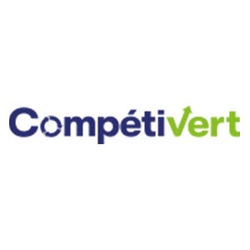
Compétivert — Funding Solution
Investissement Québec (IQ)- Minimum amount : 50,000 $
- All industries

MRC Beaharnois-Salaberry — Local Investment Fund (FLI)
MRC Beauharnois-Salaberry- From $5,000 to $150,000
- Up to 50% of project cost
- All industries
Download the official 2026 grants guide
Access key insights to maximize your grant funding opportunities
Understand the different funding programs and find the best options for your business.

Tax Holiday for Foreign Researchers
Ministère de l'économie, de l'innovation et de l'énergie du Québec (MEIE)- No Condition
- Professional, scientific and technical services
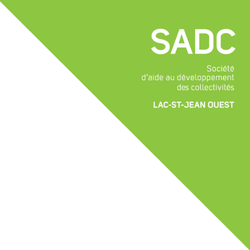
SADC Lac-St-Jean Ouest — Tourist Loan
SADC Lac-St-Jean Ouest- Maximum amount : 50,000 $
- Arts, entertainment and recreation
- Accommodation and food services

MRC de Rivière-du-Loup — FRR – Stream 1: Regional outreach fund / Territorial projects
MRC Rivière-du-Loup- Maximum amount : 50,000 $
- Up to 30% of project cost
- Utilities
- Other services (except public administration)
- Public administration
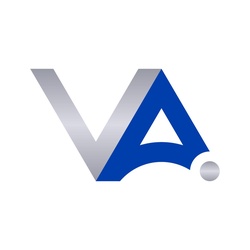
Rio Tinto Aluminium Valley Fund
Société de la Vallée de l’Aluminium (SVA)- Maximum amount : 25,000 $
- Up to 50% of project cost
- Manufacturing

Génome Québec — Genomics Integration Program – Human Health
Génome Québec- From $50,000 to $200,000
- Up to 50% of project cost
- Health care and social assistance
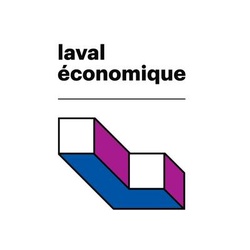
Laval Économique — Innogec Laval Fund
Laval Economique- From $5,000 to $15,000
- Up to 40% of project cost
- All industries
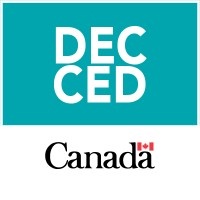
Official Languages Economic Development Initiative in Quebec — For-profit
Canada Economic Development for Quebec Regions (CED)- Up to 50% of project cost
- Information and cultural industries
- Professional, scientific and technical services
- Other services (except public administration)
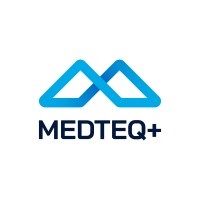
MEDTEQ+ — Vitrine d’innovation en santé
Consortium de recherche et d’innovation en technologies médicales du Québec- Maximum amount : 350,000 $
- Up to 50% of project cost
- Professional, scientific and technical services
- Health care and social assistance

NUMERIA program
Computer Research Institute of Montreal (CRIM)- No Condition
- Manufacturing
- Information and cultural industries
- Professional, scientific and technical services
- Health care and social assistance

Tax credit for internal design in Québec
Revenu Québec- Minimum amount : 150,000 $
- Up to 24% of project cost
- Manufacturing
- Professional, scientific and technical services

REGI — Regional Innovation Ecosystems — CED (QC) — Not-for-profit
Canada Economic Development for Quebec Regions (CED)- Up to 90% of project cost
- Manufacturing
- Information and cultural industries
- Educational services
- Other services (except public administration)

Economic Development Organization Operating Support Program (PAFODE) — Component 2 : Operating support for organizations supporting strategic sectors and regional economic development
Gouvernement du Québec- Maximum amount : 800,000 $
- Up to 100% of project cost
- Manufacturing
- Professional, scientific and technical services
- Educational services
- Other services (except public administration)

Entrepreneurial Assistance Program (PAEN)
Ministère de l'économie, de l'innovation et de l'énergie du Québec (MEIE)- No Condition
- Agriculture, forestry, fishing and hunting
- Mining, quarrying, and oil and gas extraction
- Utilities
- Construction
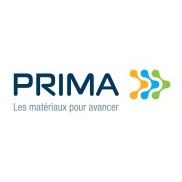
PRIMA — SI2TEC – Feasibility Studies
Advanced Materials Research and Innovation Hub (PRIMA)- Maximum amount : 75,000 $
- Up to 50% of project cost
- Manufacturing
- Professional, scientific and technical services
- Administrative and support, waste management and remediation services

Biofood Innovation Program Component 4 – Financial support for innovation partnership initiatives
Ministry of Agriculture, Fisheries and Food (MAPAQ)- From $50,000 to $901,700
- Up to 60% of project cost
- Agriculture, forestry, fishing and hunting
- Professional, scientific and technical services
- Educational services
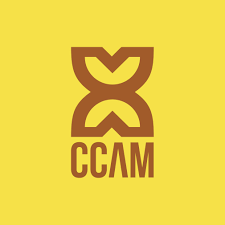
Élan Madeleine Féquière Scholarship
Centre culturel afro-canadien de Montréal (CCAM)- Maximum amount : 2,000 $
- Arts, entertainment and recreation

Biofood Innovation Program Component 3 – Business innovation in the commercial fisheries and aquaculture sector
Ministry of Agriculture, Fisheries and Food (MAPAQ)- From $20,000 to $210,000
- Up to 90% of project cost
- Agriculture, forestry, fishing and hunting
- Manufacturing

Collaborative Industrial Research and Support to Innovative Entrepreneurship — Stream 2
Ministère de l'économie, de l'innovation et de l'énergie du Québec (MEIE)- Maximum amount : 350,000 $
- Up to 30% of project cost
- Manufacturing
- Information and cultural industries
- Professional, scientific and technical services

Sector development program
Ministry of Agriculture, Fisheries and Food (MAPAQ)- No Condition
- Agriculture, forestry, fishing and hunting

Québec city — Supporting the development of the Saint-Roch district
Quebec City- Maximum amount : 500,000 $
- Up to 25% of project cost
- Information and cultural industries
- Finance and insurance
- Professional, scientific and technical services
- Arts, entertainment and recreation

Consolidating the entrepreneurial life cycle in the ecological transition
City of Montreal (MTL)- Up to 80% of project cost
- Manufacturing
- Professional, scientific and technical services
- Administrative and support, waste management and remediation services
- Educational services

ADM Fund / 375 idea
City of Montreal (MTL)- Maximum amount : 7,500 $
- All industries

Social economy support program (PSES) – Stream 2
Social Economy Cluster — Central Quebec- Maximum amount : 500,000 $
- Up to 70% of project cost
- Construction
- Manufacturing
- Retail trade
- Transportation and warehousing

MRC La Nouvelle-Beauce — Nouvelle-Beauce entrepreneurial web
MRC de La Nouvelle-Beauce- Maximum amount : 3,500 $
- Up to 75% of project cost
- All industries

Regional Initiatives Fund (FAIR)
Ministère de l'économie, de l'innovation et de l'énergie du Québec (MEIE)- Maximum amount : 150,000 $
- Up to 90% of project cost
- Agriculture, forestry, fishing and hunting
- Utilities
- Construction
- Manufacturing
Access over 4000 different funding opportunities
Try the helloDarwin platform today and find programs that fit your needs
The helloDarwin application makes it easy to unlock grants so your business can grow faster—with less hassle and more impact.

PSO – Organic food
Consortium de recherche et d'innovations en bioprocédés industriels au Québec (CRIBIQ)- Maximum amount : 500,000 $
- Up to 27% of project cost
- Agriculture, forestry, fishing and hunting
- Manufacturing
- Professional, scientific and technical services

Promotion Program – Industry Initiatives Stream
Telefilm Canada- No Condition
- Information and cultural industries

innovÉÉ — PARTENAR-IA — Industry
innovÉÉ- Maximum amount : 1,500,000 $
- Up to 35% of project cost
- Agriculture, forestry, fishing and hunting
- Mining, quarrying, and oil and gas extraction
- Construction
- Manufacturing

Show production tax credit
Société de développement des entreprises culturelles (SODEC)- Maximum amount : 1,250,000 $
- Up to 35% of project cost
- Arts, entertainment and recreation
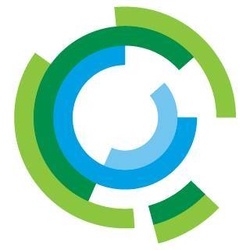
Quebec International — Set up or expand a business
Québec International- No Condition
- Manufacturing
- Information and cultural industries
- Finance and insurance
- Health care and social assistance

Economic Diversification Fund (FDE) for the MRC des Sources territory
Ministère de l'économie, de l'innovation et de l'énergie du Québec (MEIE)- No Condition
- Construction
- Manufacturing
- Wholesale trade
- Retail trade

innovÉÉ — ÉFÉC
innovÉÉ- Maximum amount : 75,000 $
- Up to 50% of project cost
- Manufacturing
- Professional, scientific and technical services
- Administrative and support, waste management and remediation services
- Other services (except public administration)

CRIBIQ — PSO-Bioproducts and bioprocesses
Consortium de recherche et d'innovations en bioprocédés industriels au Québec (CRIBIQ)- Maximum amount : 1,500,000 $
- Up to 40% of project cost
- Agriculture, forestry, fishing and hunting
- Manufacturing
- Professional, scientific and technical services

Anges Québec Capital Fund
Anges Québec- No Condition
- All industries

Technology showcase - pre-commercialization of innovation
Quebec City- Maximum amount : 250,000 $
- Up to 50% of project cost
- Agriculture, forestry, fishing and hunting
- Manufacturing
- Information and cultural industries
- Finance and insurance

Call for projects for digital cultural development in the Canadian Francophonie
Gouvernement du Québec- Maximum amount : 25,000 $
- Up to 75% of project cost
- Information and cultural industries
- Educational services
- Arts, entertainment and recreation

Ascension competition
Quebec City Junior Chamber of Commerce (JCCQ)- Maximum amount : 60,000 $
- Construction
- Manufacturing
- Retail trade
- Transportation and warehousing

CMF-SODEC — Corporate Financial Program for Television Production
Canada Media Fund (CMF)- Maximum amount : 500,000 $
- Up to 75% of project cost
- Information and cultural industries

SADC Lac-St-Jean Ouest — Loan The Developer
SADC Lac-St-Jean Ouest- Maximum amount : 300,000 $
- Up to 2% of project cost
- All industries

Call for innovative projects in artificial intelligence: collaborative industrial research and support for innovative entrepreneurship
Gouvernement du Québec- Maximum amount : 1,500,000 $
- Professional, scientific and technical services

Humami Center — A structured approach to innovation and commercialization based on the specific needs of institutions
Humami Center- No Condition
- Agriculture, forestry, fishing and hunting
- Manufacturing
- Wholesale trade
- Retail trade

MRC des Appalaches - Economic Diversification Fund (FDE)
MRC des Appalaches- Maximum amount : 150,000 $
- All industries

Turn to excellence!
La Financière agricole (FADQ)- From $2,000 to $7,000
- Agriculture, forestry, fishing and hunting

MEIE — Program to support the development of strategic sectors and niches of excellence (PADS)
Ministère de l'économie, de l'innovation et de l'énergie du Québec (MEIE)- No Condition
- All industries

Emerging Farmers Award
Gouvernement du Québec- From $3,500 to $7,500
- Agriculture, forestry, fishing and hunting
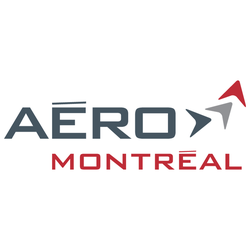
Aero Montreal — StartAéro 360°
Aéro Montreal- No Condition
- Manufacturing
- Transportation and warehousing
- Professional, scientific and technical services
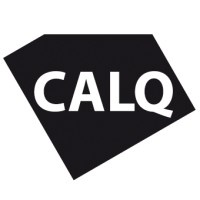
CALQ — Professional Development
Conseil des arts et des lettres du Québec (CALQ)- Maximum amount : 15,000 $
- Information and cultural industries
- Arts, entertainment and recreation

Project support program for the Critical and Strategic Minerals Scientific Research Network
Metal Transformation Research and Innovation Consortium (MTRIC)- Maximum amount : 2,000,000 $
- Up to 70% of project cost
- Mining, quarrying, and oil and gas extraction
- Manufacturing
- Other services (except public administration)
- Public administration

Honorific grants 2025 – Entreprendre ici
Ministère de l'économie, de l'innovation et de l'énergie du Québec (MEIE)- Maximum amount : 25,000 $
- All industries

Innovative Enterprise Program
Economic Development Pierre-De Saurel (DEPS)- Maximum amount : 38,000 $
- Up to 95% of project cost
- Agriculture, forestry, fishing and hunting
- Manufacturing
Tired of scrolling through all these programs?
Filter grants relevant for your company on the helloDarwin platform
Sort over 4,000 business funds by your industry, projects and location with helloDarwin's free app.

Lac-Mégantic Economic Assistance Fund (FAELM)
Ministère de l'économie, de l'innovation et de l'énergie du Québec (MEIE)- No Condition
- Manufacturing
- Accommodation and food services
- Other services (except public administration)
- Public administration
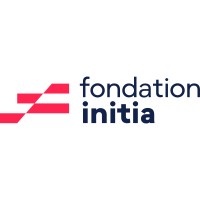
Relève Alimentaire Québec Award
Initia Foundation- From $5,000 to $10,000
- Up to 60% of project cost
- Manufacturing
- Accommodation and food services

CQRDA — PARTENAR-IA — Business
Centre québécois de recherche et de développement de l’aluminium (CQRDA)- Maximum amount : 1,500,000 $
- Up to 50% of project cost
- Agriculture, forestry, fishing and hunting
- Mining, quarrying, and oil and gas extraction
- Construction
- Manufacturing

Emerging Talent Awards as part of the 2025 Rendez-vous Génome Québec
Génome Québec- Maximum amount : 25,000 $
- Agriculture, forestry, fishing and hunting
- Professional, scientific and technical services
- Educational services
- Health care and social assistance

ARBJ — Targeted Financing Program (TFP)
Administration régionale Baie-James (ARBJ)- Up to 20% of project cost
- All industries

CQRDA — Providers-Clients
Centre québécois de recherche et de développement de l’aluminium (CQRDA)- Maximum amount : 2,000,000 $
- Up to 75% of project cost
- Manufacturing
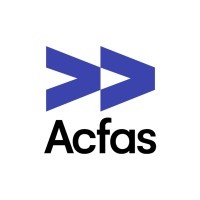
Geniuses in business
Acfas- No Condition
- Manufacturing
- Professional, scientific and technical services
- Educational services
- Health care and social assistance

PRIMA — Call For Projects In Artificial Intelligence And Quantum Technologies
Advanced Materials Research and Innovation Hub (PRIMA)- Maximum amount : 1,500,000 $
- Up to 35% of project cost
- Agriculture, forestry, fishing and hunting
- Manufacturing
- Transportation and warehousing
- Information and cultural industries

Compétivert — Investment Matching Solution
Investissement Québec (IQ)- From $1,000,000 to $5,000,000
- Up to 50% of project cost
- Manufacturing

PME MTL — Social Initiatives
PME MTL- From $5,000 to $50,000
- All industries

Impulsion SME
Investissement Québec (IQ)- From $250,000 to $2,000,000
- Up to 50% of project cost
- Manufacturing
- Information and cultural industries
- Professional, scientific and technical services
- Health care and social assistance

SME in action
Ministère de l'économie, de l'innovation et de l'énergie du Québec (MEIE)- No Condition
- Manufacturing

ID Gatineau — Economic Diversification Fund
ID Gatineau- Maximum amount : 100,000 $
- Up to 15% of project cost
- Manufacturing
- Information and cultural industries
- Professional, scientific and technical services

Cégep de Sept-Îles
Cégep de Sept-Îles- No Condition
- Mining, quarrying, and oil and gas extraction
- Educational services
- Health care and social assistance

Honorific grants 2024 — Entreprendre ici
Ministère de l'économie, de l'innovation et de l'énergie du Québec (MEIE)- Maximum amount : 25,000 $
- All industries

Pierre Péladeau Scholarships
AsterX- Maximum amount : 75,000 $
- Agriculture, forestry, fishing and hunting
- Mining, quarrying, and oil and gas extraction
- Manufacturing
- Retail trade

Tax Holiday for Foreign Experts
Ministère de l'économie, de l'innovation et de l'énergie du Québec (MEIE)- No Condition
- Professional, scientific and technical services

CED — Regional Homebuilding Innovation Initiative
Canada Economic Development for Quebec Regions (CED)- Up to 90% of project cost
- Construction
- Manufacturing

Support Policy For Businesses
City of Trois-Rivières- Maximum amount : 40,000 $
- Up to 80% of project cost
- Manufacturing
- Professional, scientific and technical services
- Arts, entertainment and recreation
- Accommodation and food services

City of Lévis — Quebec Business Access Network
Ville de Lévis- No Condition
- All industries

PRIMA — INNOV-R
Advanced Materials Research and Innovation Hub (PRIMA)- Maximum amount : 500,000 $
- Up to 50% of project cost
- Manufacturing
- Professional, scientific and technical services
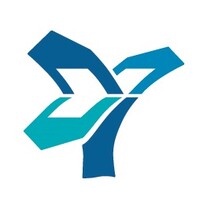
Springboard for innovation
Federation of Private Educational Institutions (FEEP)- Up to 66% of project cost
- Educational services

Biofood Innovation Program Component 5 – Support for knowledge transfer and dissemination
Ministry of Agriculture, Fisheries and Food (MAPAQ)- From $8,000 to $143,750
- Up to 70% of project cost
- Agriculture, forestry, fishing and hunting

Quebec Research Fund — Society and Culture Sector (FRQSC)
Québec Research Fund- No Condition
- Professional, scientific and technical services
- Educational services
- Health care and social assistance
- Arts, entertainment and recreation

PRIMA — INNOV-R SME
Advanced Materials Research and Innovation Hub (PRIMA)- Maximum amount : 450,000 $
- Up to 50% of project cost
- Utilities
- Manufacturing
- Transportation and warehousing
- Professional, scientific and technical services
Discover how much grant funding is available for your business
Subsidize your projects with grants!
Use our free grant estimator to quickly identify the available grant amounts for which your company may be eligible.

Mining Research and Innovation Support Program
Ministère des Ressources naturelles et des Forêts (MRNF)- Maximum amount : 600,000 $
- Up to 40% of project cost
- Mining, quarrying, and oil and gas extraction

CALQ — Travel
Conseil des arts et des lettres du Québec (CALQ)- No Condition
- Information and cultural industries
- Professional, scientific and technical services
- Arts, entertainment and recreation

Infrastructure de recherche et développement
Quebec City- No Condition
- Manufacturing
- Information and cultural industries
- Professional, scientific and technical services
- Administrative and support, waste management and remediation services

Accelerate Program for Quebec Emerging Companies
adMare Bioinnovations- No Condition
- Manufacturing
- Professional, scientific and technical services
- Health care and social assistance

innovÉÉ — Accord
innovÉÉ- From $100,000 to $350,000
- Up to 80% of project cost
- Utilities
- Manufacturing
- Professional, scientific and technical services

Circular Initiatives Awards
Circular Québec- No Condition
- Manufacturing
- Administrative and support, waste management and remediation services
- Educational services
- Other services (except public administration)

Tax credit for cellulosic ethanol production in Quebec
Revenu Québec- No Condition
- Manufacturing

Tax credit for pyrolytic oil production in Québec
Revenu Québec- No Condition
- Manufacturing

Economic Diversification Fund (FDE) - Centre-du-Québec and Mauricie regions
Ministère de l'économie, de l'innovation et de l'énergie du Québec (MEIE)- No Condition
- Manufacturing
- Professional, scientific and technical services
- Other services (except public administration)
- Public administration

MEDTEQ+ — Call for Projects – FEMTECH
Consortium de recherche et d’innovation en technologies médicales du Québec- Maximum amount : 1,500,000 $
- Up to 20% of project cost
- Professional, scientific and technical services
- Health care and social assistance

Accompaniment and technical support for Québec forestry companies (MASTE)
Gouvernement du Québec- Maximum amount : 50,000 $
- Up to 75% of project cost
- Agriculture, forestry, fishing and hunting

ID Gatineau — Business Support Fund
ID Gatineau- Maximum amount : 25,000 $
- Up to 50% of project cost
- Manufacturing

Défi-Québec, an entrepreneurial city
Quebec City- Maximum amount : 50,000 $
- Up to 50% of project cost
- Utilities
- Manufacturing
- Information and cultural industries
- Professional, scientific and technical services

Program to support the fight against climate change in the bio-food sector – Component B
Ministry of Agriculture, Fisheries and Food (MAPAQ)- From $57,142 to $330,000
- Up to 50% of project cost
- Agriculture, forestry, fishing and hunting
- Manufacturing

MEDTEQ+ — Impact
Consortium de recherche et d’innovation en technologies médicales du Québec- Maximum amount : 1,500,000 $
- Up to 40% of project cost
- Professional, scientific and technical services
- Educational services
- Health care and social assistance

Territorial and sectoral development program — Stream 2.1
Ministry of Agriculture, Fisheries and Food (MAPAQ)- From $5,000 to $250,000
- Up to 80% of project cost
- Agriculture, forestry, fishing and hunting

Ressources Entreprises
Ressources Entreprises- No Condition
- All industries

Innov'Action agroalimentaire Program
Ministry of Agriculture, Fisheries and Food (MAPAQ)- No Condition
- Agriculture, forestry, fishing and hunting
- Manufacturing

CQRDA — SI2TEC
Centre québécois de recherche et de développement de l’aluminium (CQRDA)- Maximum amount : 75,000 $
- Up to 50% of project cost
- Manufacturing
- Professional, scientific and technical services
- Administrative and support, waste management and remediation services

Business Assistance — Immigrant Investor Program
Investissement Québec (IQ)- Up to 10% of project cost
- All industries

Quebec Housing Industry Development Program (PADIQH)
Quebec Housing Society (SHQ)- Maximum amount : 300,000 $
- Up to 66.67% of project cost
- Construction
- Manufacturing
- Professional, scientific and technical services

InnoFood — Food innovations for a sustainable future
Consortium de recherche et d'innovations en bioprocédés industriels au Québec (CRIBIQ)- Maximum amount : 1,500,000 $
- Up to 40% of project cost
- Manufacturing

Quebec Fisheries Fund — Innovation
Fisheries and Oceans Canada (DFO)- Maximum amount : 1,000,000 $
- Agriculture, forestry, fishing and hunting

Évolution-Compétences — Innovation and knowledge component
Commission des partenaires du marché du travail (CPMT)- Up to 100% of project cost
- All industries
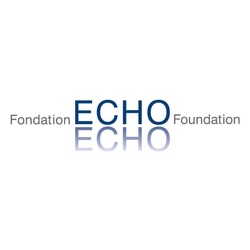
ECHO Foundation — Mental health
ECHO Foundation- No Condition
- Health care and social assistance
Find tailored funding for your business
Discover more grants on the helloDarwin platform
Look through over 4,000 grants, tax credits, loans and more financial aid on the helloDarwin application.

SADC Lac-St-Jean Ouest — Youth Strategy Fund
SADC Lac-St-Jean Ouest- No Condition
- All industries

FTQ — Business Financing
Solidarity Funds (FTQ)- From $100,000 to $5,000,000
- Up to 40% of project cost
- Agriculture, forestry, fishing and hunting
- Construction
- Manufacturing
- Transportation and warehousing

Tourism Business Development Fund (TBDF)
Quebec Ministry of Tourism (MTO)- From $50,000 to $500,000
- Up to 10% of project cost
- Accommodation and food services
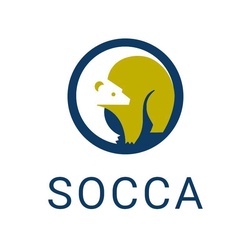
Aboriginal Business Financing Program (ABDP) — Community project
SOCCA- Up to 75% of project cost
- All industries

Programme d’appui au développement des secteurs stratégiques et des créneaux d’excellence (PADS)
UAS Centre of Excellence- Maximum amount : 1,500,000 $
- Up to 50% of project cost
- Manufacturing

Desjardins — Agriculture loans and financing
Desjardins- No Condition
- Agriculture, forestry, fishing and hunting
- Finance and insurance

CRIBIQ-BIOnext
Consortium de recherche et d'innovations en bioprocédés industriels au Québec (CRIBIQ)- Maximum amount : 15,000 $
- Manufacturing
- Professional, scientific and technical services

New Mobility Assistance Program (NOMO) – Stream 1
Minister of Transport and Sustainable Mobility of Quebec- Maximum amount : 1,500,000 $
- Up to 75% of project cost
- Transportation and warehousing
- Professional, scientific and technical services
- Educational services
- Health care and social assistance

MomentumPI – Intellectual property support
Main- No Condition
- Manufacturing
- Information and cultural industries
- Professional, scientific and technical services
- Educational services

innovÉÉ — PARTENAR-IA — Academic
innovÉÉ- Maximum amount : 150,000 $
- Up to 50% of project cost
- All industries

Social economy support program (PSES) – Stream 3
Social Economy Cluster — Central Quebec- Maximum amount : 100,000 $
- Up to 70% of project cost
- Other services (except public administration)
- Public administration
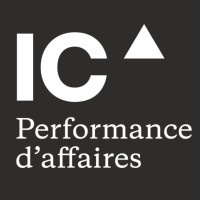
- No Condition
- All industries

Support program for economic development projects (PAPDE) — Component 3 : Promotion of foreign trade and prospecting for foreign investments
Gouvernement du Québec- Maximum amount : 500,000 $
- Up to 50% of project cost
- All industries
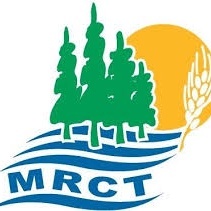
MRC Témiscamingue — Tourism Attraction Fund
MRC Témiscamingue- From $5,000 to $20,000
- Up to 15% of project cost
- Arts, entertainment and recreation
- Accommodation and food services
- Other services (except public administration)
- Public administration

Fonds de recherche du Québec - Nature and Technology Sector (FRQNT)
Québec Research Fund- No Condition
- Professional, scientific and technical services
- Educational services
- Health care and social assistance
- Arts, entertainment and recreation
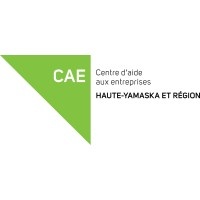
FIJE Fund
Centre d'Aide aux Entreprises Haute-Yamaska et région (CAEHYR)- Maximum amount : 50,000 $
- All industries

Quantum Quebec
Ministère de l'économie, de l'innovation et de l'énergie du Québec (MEIE)- No Condition
- Manufacturing
- Information and cultural industries
- Professional, scientific and technical services
- Educational services
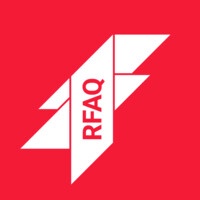
Quebec Business Women's Award
Quebec Business Women's Network (RFAQ)- No Condition
- All industries

Gaspésie and Maritime Provinces
Investissement Québec (IQ)- Up to 30% of project cost
- Agriculture, forestry, fishing and hunting
- Utilities
- Manufacturing
- Arts, entertainment and recreation

Panel innovation platform (PIP)
Ministry of Forests, Wildlife and Parks- From $100,000 to $375,000
- Up to 75% of project cost
- Agriculture, forestry, fishing and hunting

Tax credit for a new financial services corporation
Revenu Québec- No Condition
- Finance and insurance

CALQ — Strategic Opportunities and Career Planning
Conseil des arts et des lettres du Québec (CALQ)- Maximum amount : 100,000 $
- Information and cultural industries
- Arts, entertainment and recreation
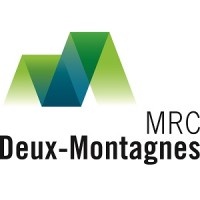
MRC Deux-Montagnes— Regional and Rural Fund (FRR) – Stream 2
MRC Deux-Montagnes- From $5,000 to $150,000
- Up to 20% of project cost
- Agriculture, forestry, fishing and hunting
- Arts, entertainment and recreation
- Other services (except public administration)
- Public administration

Bringing Circularity to Life in the Bioeconomy: From Envisioning to Planning
Consortium de recherche et d'innovations en bioprocédés industriels au Québec (CRIBIQ)- Maximum amount : 75,000 $
- Up to 50% of project cost
- Manufacturing

Quebec Economic Development Program (QEDP)
Canada Economic Development for Quebec Regions (CED)- Up to 50% of project cost
- Manufacturing
- Professional, scientific and technical services
- Arts, entertainment and recreation
- Accommodation and food services